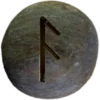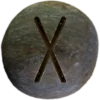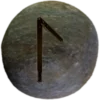Last Updated on April 23, 2025
Table of Contents


A Sacred Gathering
A blót is a Norse pagan ritual where people offer gifts to gods, spirits, or ancestors. The word blót (pronounced bloht, with a long o as in “boat”) comes from Old Norse. It refers to both the ritual and the offerings themselves. The practice connects the living with divine or supernatural beings. Common gifts include food, drink, animal sacrifices, or crafted items.
People often hold a these ceremonies at significant times of year. The seasonal changes—such as solstices or harvests—guide the timing. Personal events, like births or funerals, may also inspire a blót. The ritual strengthens bonds between the human and the spiritual world. It reflects respect and gratitude. It can also ask for blessings or protection.
The word also exists in related languages. In Old English, blōt holds a similar meaning. It means sacrifice or worship. This suggests the practice has deep roots among Germanic peoples.
In Old Norse texts, the verb form is blóta (pronounced bloh-tah). It means “to offer” or “to worship.” The noun and verb often appear together. Someone may say, “They hold a blót and blóta the gods.” This shows both the action and its purpose.
The Practice
A blót usually begins with gathering. The host may lead the group in honoring gods or spirits. People speak prayers, poems, or chants. The tone is respectful but personal. This is not a sermon or lecture. Instead, each person may speak from the heart.
If the ritual includes animal sacrifice, the process must follow tradition. The animal must be healthy. The sacrifice should be quick and humane. The meat is not wasted. People cook it and share it during the feast. This act of sharing seals the bond among gods, spirits, and humans.
Offerings may also include bread, ale, mead, or items with symbolic value. A carved figure, a handmade bowl, or a woven cloth might serve as a gift. Each item should hold meaning for the giver.
A central part of many blóts is the hófgangr (pronounced HOHV-gangr), the ritual procession. Participants may circle the sacred space. They carry the offerings while singing or chanting. This movement helps create a focused, sacred mood.
After the offering, people often eat and drink together. This feast is not only a celebration. It also affirms the connection between all who attend. It joins past, present, and future in one act of honor.
Blóts can take place in homes, forests, or designated sacred sites. The setting must feel special. Sometimes people build a small altar or gather near old stones or trees. The natural world plays a big role in the ritual. The setting should reflect the purpose of the ritual.
Mentions in the Sagas
The Heimskringla by Snorri Sturluson describes several blóts. In the Ynglinga Saga, King Domalde suffers poor harvests. His people first offer animals. When that fails, they offer the king himself. This shows the deep link between sacrifice and survival in Norse belief.
In the Saga of Hákon the Good, King Hákon tries to introduce Christianity. He still must attend the blót at Mære to keep peace with his people. The saga describes how he pretends to drink the sacrificial ale without blessing it.
These examples show that the ceremonies were public, powerful, and political. They tied leaders to the gods and to their people. Refusing to join the ritual could bring conflict. Participation signaled loyalty and unity.
Blót remains a strong word, rich in meaning. It reflects an old way of honoring life’s forces. Its pronunciation—bloht—carries the sound of time, tradition, and tribute.
Elder Futhark Runes and Blóts
The Ansuz rune represents wisdom and communication, aligning closely with Blóts. During the ceremony, people seek divine wisdom, often through shared recitations or symbolic items. Ansuz signifies inspired speech and guidance, linking well to the rituals. Another rune, Gebō, symbolizes giving and receiving. This concept captures the essence of these ceremonies, where offerings and blessings move freely between participants and the divine.
The Importance of Blót in Asatru
Blóts play a foundational role in Asatru, bringing people together for reverent connection and celebration. They create moments to honor deities, share thanks, and request blessings. Blóts allow Asatru practitioners to build community, reinforcing trust, unity, and shared purpose. Through these sacred ceremonies, people connect with deities and nature while strengthening bonds within their Asatru kindred.

